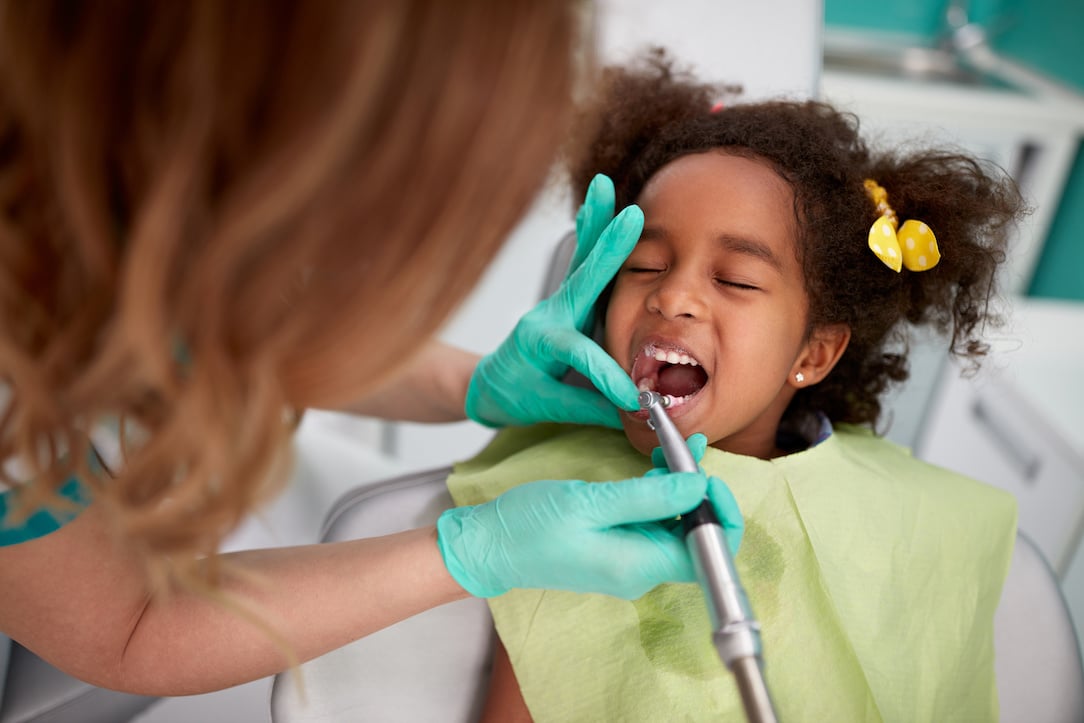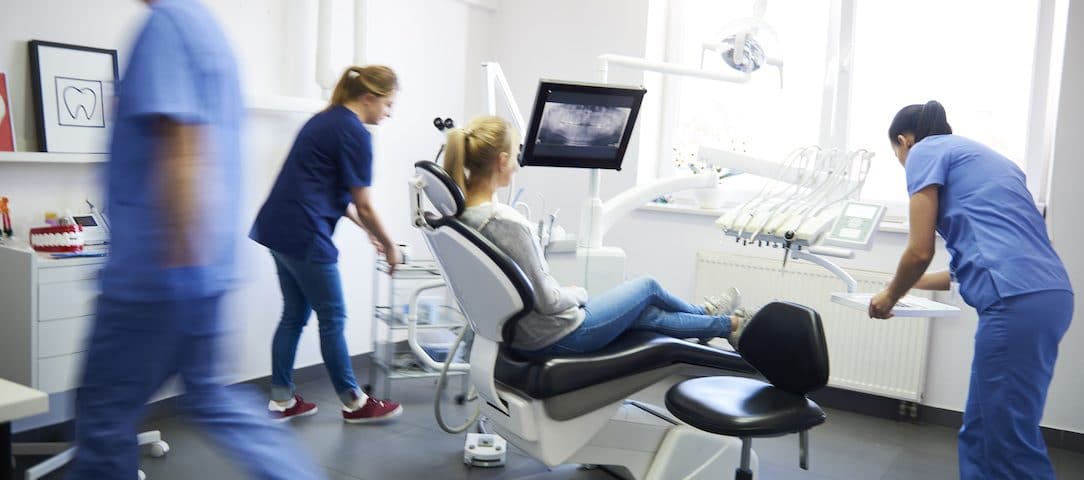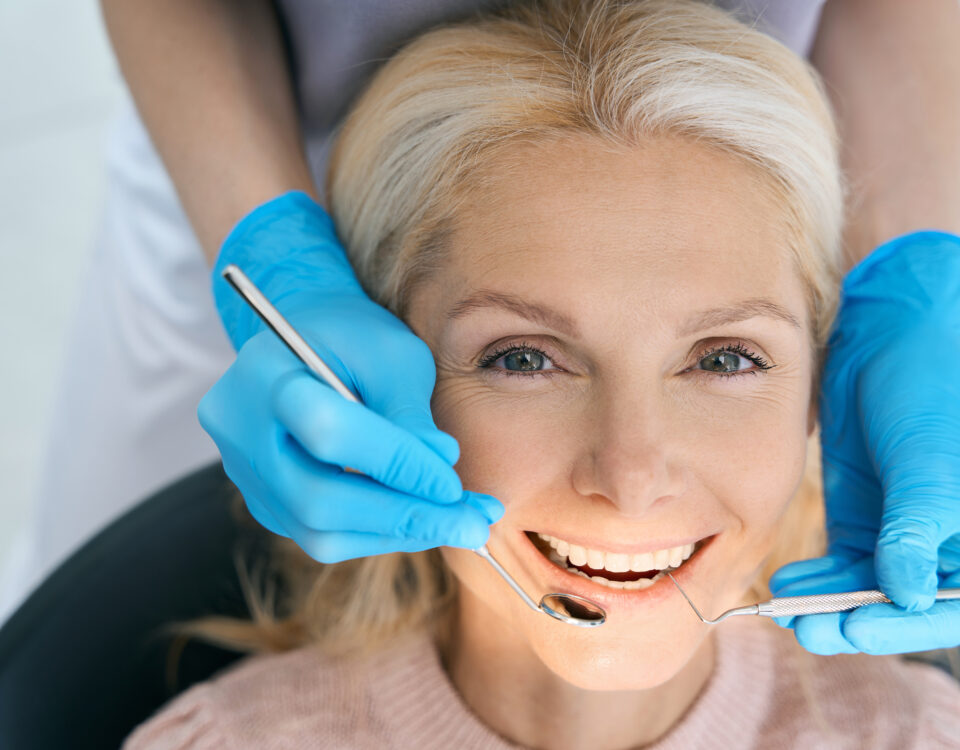What’s a Dental Emergency?
Achieve Better Sleep in 2020 with Help from Your Dentist
January 30, 2020
Children’s Dental Health Month: 4 Things You Should Know
February 12, 2020Accidents happen, and sometimes they can cause us to hurt ourselves: like busting a lip or knocking out a tooth. But what warrants an immediate trip to the dentist? We understand that sometimes you can’t always plan when you need to visit the dentist, and if you ever have a dental emergency, contact our office as soon as possible.
If you have ever had a dental emergency, you know what a scary time that can be for you and your loved ones. The pain can be unbearable and you also worry about the damage it will cause to your smile. Are you aware of what is considered a dental emergency?
What is a Dental Emergency?
If you find one of these things happening to you, you should see a dentist immediately. Dental emergencies can include:
- Chipped or broken teeth
- Knocked-out teeth
- Cracked or fractured teeth
- Extruded (partially knocked-out) teeth
- Damaged dental restorations (fillings or crowns)
- Debris stuck between teeth that you can’t remove with gentle flossing
- Severe, long-lasting toothaches
- Injuries to soft tissue of the mouth (gums, lips, cheeks, tongue)
Dental emergencies can be painful and scary. If one of these things happen to you, stay calm and know that we’re here and ready to help you in your time of need.
If You Have An Emergency
In case of a dental emergency, contact the dentist office as soon as possible to get an emergency appointment. In addition, there are steps according to Know Your Teeth that you can take from the moment an injury occurs until you can get to the dentist to help keep teeth viable and repairable.
Knocked Out Teeth
If a tooth is knocked out, don’t mess with the tooth by the root as it can cause cell damage and interfere with potential reattachment. Gently rinse tooth with warm water to get rid of dirt and debris and keep it clean. Keep it in a glass of milk until you can get to your dentist – this helps the tooth retain its moisture.
Out of Place Teeth
If a tooth is still attached but pushed out of place, you may attempt to move the tooth back to its place by using very light pressure. Do not force anything.
Fractured Teeth
If you have a fractured tooth, rinse mouth with warm water and use a cold compress to help will swelling. If accessible, ibuprofen (not aspirin) can help for pain management. Once the dentist can determine the extent of the damage, then a plan will be put into place.
Tissue Injury
If your dental emergency is because of damage to your mouth’s tissue (cheek, lips, or tongue) clean wound with a warm water rinse. This typically involvers lacerations, tears, or punctures to those tissues. In this case, get to the emergency room immediately for appropriate care.
Good tips for all dental emergencies include being sure to: rinse your mouth with warm salt water, use ice packs to help with swelling, use over the counter painkillers as prescribed, and mouthwash with hydrogen peroxide to kill bacteria. Your dentist will be able to tell you what they think is best for your specific injury – which is why it’s important to get in fast when you’re dealing with mouth pain.
Once You See the Dentist
Once you have seen the dentist for your emergency, be sure to follow through with the care plan they give you. Keep up good oral hygiene by flossing and brushing regularly, and chewing hard foods with care.
To prevent emergencies and future injuries, we advise you to wear a mouthguard when playing sports or other physically active games, avoid chewing ice and hard foods, and avoid using your teeth to open things – find a pair of scissors instead! You can’t prevent all injuries, but when you’re careful you can avoid some of these painful circumstances.
Staying Prepared with Premier Dentistry of Eagle
At home, keep a dental emergency kit that includes our contact information, gauze, and ibuprofen. You want to be able to save your smile, so if you think you have a dental emergency you should get to the dentist immediately. Contact us as soon as possible and be sure you save our contact information so you have it readily available at all times! (208)-546-0655



